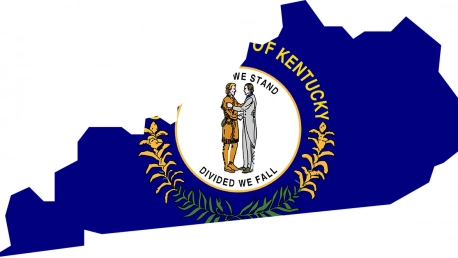Kentucky Governor Andy Beshear recently wielded his veto power against a number of bills, sparking debate over constitutional limits and political influence in the state’s governance. This action underscores the tension between the executive and legislative branches, exposing the dynamic interplay of governmental checks and balances. Beshear’s move to block these legislative initiatives has stirred a complex political dance that reflects the state’s efforts to maintain equilibrium among its governing bodies. Each veto serves not just as a rebuttal of policy but also as an assertion of gubernatorial authority, challenging legislators to reconsider or potentially override his decisions. This situation highlights the delicate act of governing while navigating the intricate web of political relationships and the foundational principles of the state’s constitution.
Beshear’s Battle with the Legislature
Veto on Constitutional Lawsuit Venues
Kentucky Governor Beshear vetoed legislation aimed at relocating constitutional suits from the state capital’s courts to potentially more biased venues. This move is seen by Beshear as a threat to judicial independence and a breach of the separation of powers, fearing it could lead to “judge shopping” and politically skewed rulings, undermining the public’s trust in the judiciary. His action reflects the Kentucky Supreme Court’s rejection of similar past legislation and underscores his commitment to constitutional integrity and the judiciary’s impartiality. This stance marks a recurring theme in Beshear’s tenure, where he stands firm against unconstitutional legislative incursions and strives to protect the judiciary’s critical role in the democratic process.
Rejection of Nuclear Energy Development Authority Bill
Governor Beshear has recently vetoed the bill establishing the Kentucky Nuclear Energy Development Authority due to concerns over its governance. Despite recognizing nuclear power’s role in energy diversification, he objected to the bill’s terms that would allow private individuals considerable power in selecting the majority of the authority’s board members. Beshear saw this as an overreach into the executive branch, potentially undermining oversight and fostering conflicts of interest that could negatively affect public health and the environment. He insisted that preventing possible constitutional issues took precedence over encouraging nuclear energy, standing firm in his decision against the bill amidst opposition from those who see the authority as essential for state energy advancement.
Legislative Reactions and the Overriding Possibility
Response to Healthcare and Zoning Laws Legislation Vetoes
Beshear’s string of refutations also targeted Senate Bill 65, involving emergency Medicaid regulations, and a zoning law bill emphasizing equality in treatment between gas stations and electric vehicle charging stations. Ensuring the preservation of responsible and legal administrative action, Beshear intervened on grounds of redundancy and unjustified necessity. The vetoes cast a shadow on the legislature’s bills, signifying the governor’s dedication to methodical governance rather than political expediency.The governor’s critics argue that his vetoes represent missed opportunities for progress and advancement in the Commonwealth’s policies. Republican legislators, in particular, expressed dissatisfaction with his decisions, emphasizing the potential repercussions on energy independence and legal systemic reforms.
Prospects for Veto Overrides
In the face of Beshear’s decisive vetoes, the sitting GOP supermajority in Kentucky’s legislature looms as a possible counterforce. With enough votes, these lawmakers have the power to override the governor’s actions, thereby enabling the contentious bills to become law despite his opposition. The potential for an override highlights the dynamic tension between the executive and the legislative branches and raises questions about the future of public policy in Kentucky.As the veto period progresses, all eyes are on the legislature’s next steps, as they weigh the merits of pushing forward with the disputed measures against the governor’s concerns for constitutional integrity and state stewardship. Regardless of the outcomes, this political saga underscores the enduring importance of checks and balances in Kentucky’s political theater.









